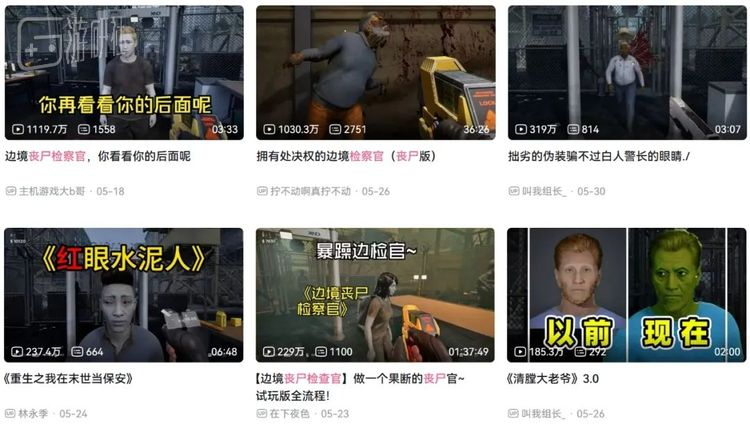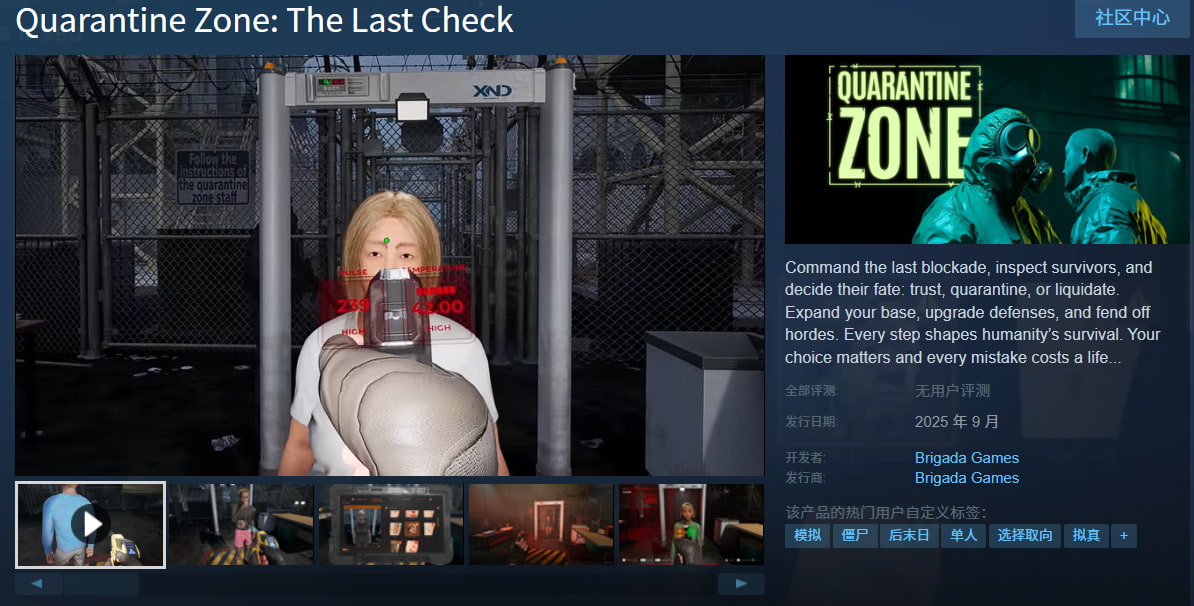When Chinese gamers drove a single video to 11 million views on Bilibili, Stas Starykh, founder of Russian indie studio Brigada Games, began reassessing his business strategy. Quarantine Zone: The Last Check—initially promoted with just $700—had already garnered over 2,000 "Overwhelmingly Positive" reviews on Steam through its demo alone. Sustaining over a thousand daily concurrent players, it surpassed the lifetime peaks of most indie titles while propelling its wishlist toward the one-million mark at a rate of 15,000 daily additions.

A former IBM sales champion turned game developer, Stas embedded sharp business acumen into the game's design. While AAA blockbusters chase cinematic storytelling, Quarantine Zone carved its niche by creating an interactive battlefield for streamers and audiences.
Set in a zombie apocalypse, the game places players in the morally ambiguous role of a border checkpoint officer. Pressure mounts through over 30 meticulously designed medical conditions requiring precise diagnosis. This fuels two distinct engagement dynamics: streamers freely choose to be ruthlessly efficient officers or corrupt cyber-officials manufacturing wrongful cases, while viewers' real-time comments create a participatory "error-correction" loop.
Crucially, the team deliberately avoided linear narratives like The Last of Us. Stas offered a market-savvy rationale: "Streamers thrive on open systems that spark audience discussion, not one-way artistic masterpieces."

Leveraging his sales background, Stas devised a low-cost validation model: "fake trailers" for fictional projects like Warehouse Simulator and Historical Alchemist tested user interest thresholds, ultimately pinpointing the career-sim genre validated by Supermarket Simulator. Building on their Unreal Engine expertise, they abandoned complex physics-heavy shop simulations for the more feasible checkpoint scenario. This data-driven approach enabled the team—with zero prior original IP experience—to precisely hit market demand.
The explosive Chinese response proved pivotal. While Chinese players constituted 11% of global wishlists, they contributed over 85% of the demo's positive reviews. However, managing Bilibili's massive traffic flow presented localization hurdles—the current Chinese version was a rush job by passionate fans. Stas admits the team is urgently learning China's market rules: "From official account registration to localization standards, we're committed to optimizing the full release."

True global publishing transcends mere translation. It demands solving three core challenges: crafting narratives resonant with local cultures, building region-specific social media operations, and implementing content compliance safeguards. As the Russian team prepares for September talks with Chinese publishers, professional localization stands as the essential key to unlocking this pivotal market.
Original article link:https://www.yystv.cn/p/12983
Article source: yys
Image source: yys/steam
Copyright notice: This article is reprinted from yys. This website does not have the ownership and will not bear relevant legal responsibilities. The information in the article only represents the author's views, not the official position of Glodom. The content is for reference and learning by netizens only. If there is any infringement, please contact info@glodomtec.com to request deletion!


